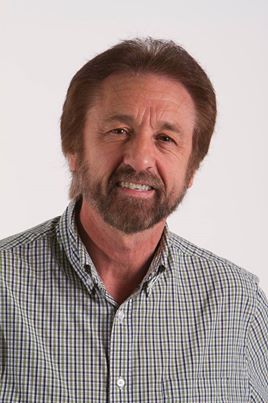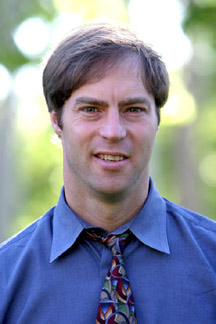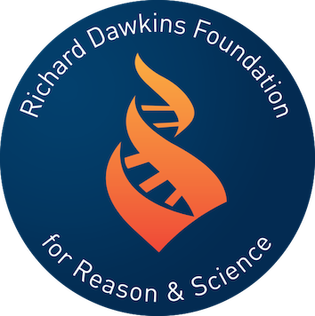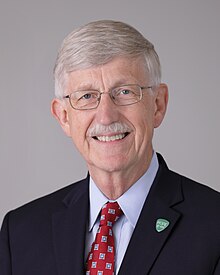
Creationism is the religious belief that nature, and aspects such as the universe, Earth, life, and humans, originated with supernatural acts of divine creation. In its broadest sense, creationism includes a continuum of religious views, which vary in their acceptance or rejection of scientific explanations such as evolution that describe the origin and development of natural phenomena.
Evolutionism is a term used to denote the theory of evolution. Its exact meaning has changed over time as the study of evolution has progressed. In the 19th century, it was used to describe the belief that organisms deliberately improved themselves through progressive inherited change (orthogenesis). The teleological belief went on to include cultural evolution and social evolution. In the 1970s, the term "Neo-Evolutionism" was used to describe the idea that "human beings sought to preserve a familiar style of life unless change was forced on them by factors that were beyond their control."

Theistic evolution, alternatively called evolutionary creationism, is a view that God acts and creates through laws of nature. Here, God is taken as the primary cause while natural causes are secondary, positing that the concept of God and religious beliefs are compatible with the findings of modern science, including evolution. Theistic evolution is not in itself a scientific theory, but includes a range of views about how science relates to religious beliefs and the extent to which God intervenes. It rejects the strict creationist doctrines of special creation, but can include beliefs such as creation of the human soul. Modern theistic evolution accepts the general scientific consensus on the age of the Earth, the age of the universe, the Big Bang, the origin of the Solar System, the origin of life, and evolution.

Answers in Genesis (AiG) is an American fundamentalist Christian apologetics parachurch organization. It advocates Young Earth creationism on the basis of its literal, historical-grammatical interpretation of the Book of Genesis and the Bible as a whole. Out of belief in biblical inerrancy, it rejects the results of scientific investigations that contradict their view of the Genesis creation narrative and instead supports pseudoscientific creation science. The organization sees evolution as incompatible with the Bible and believes anything other than the young Earth view is a compromise on the principle of biblical inerrancy.

Ray Comfort is a New Zealand-born Christian minister, evangelist and young Earth creationist who lives in the United States. Comfort started Living Waters Publications, as well as the ministry The Way of the Master, in Bellflower, California, and has written several books.

The Center for Science and Culture (CSC), formerly known as the Center for the Renewal of Science and Culture (CRSC), is part of the Discovery Institute (DI), a conservative Christian think tank in the United States. The CSC lobbies for the inclusion of creationism in the form of intelligent design (ID) in public-school science curricula as an explanation for the origins of life and the universe while trying to cast doubt on the theory of evolution. These positions have been rejected by the scientific community, which identifies intelligent design as pseudoscientific neo-creationism, whereas the theory of evolution is overwhelmingly accepted as a matter of scientific consensus.
The intelligent design movement is a neo-creationist religious campaign for broad social, academic and political change to promote and support the pseudoscientific idea of intelligent design (ID), which asserts that "certain features of the universe and of living things are best explained by an intelligent cause, not an undirected process such as natural selection." Its chief activities are a campaign to promote public awareness of this concept, the lobbying of policymakers to include its teaching in high school science classes, and legal action, either to defend such teaching or to remove barriers otherwise preventing it. The movement arose out of the creation science movement in the United States, and is driven by a small group of proponents. The Encyclopædia Britannica explains that ID cannot be empirically tested and that it fails to solve the problem of evil; thus, it is neither sound science nor sound theology.

Stephen C. Meyer is an American author and former educator. He is an advocate of intelligent design, a pseudoscientific creationist argument for the existence of God. and helped found the Center for Science and Culture (CSC) of the Discovery Institute (DI), which is the main organization behind the intelligent design movement. Before joining the DI, Meyer was a professor at Whitworth College. Meyer is a senior fellow of the DI and director of the CSC.

Michael Ruse is a British-born Canadian philosopher of science who specializes in the philosophy of biology and works on the relationship between science and religion, the creation–evolution controversy, and the demarcation problem within science. Ruse currently teaches at Florida State University.
Darrel R. Falk is an American biologist. He is Professor Emeritus of Biology at Point Loma Nazarene University and is the past president and a current senior advisor with BioLogos Foundation, an advocacy group that emphasizes compatibility between science and Christian faith.
Karl Willard Giberson is a Canadian physicist, scholar, and author, specializing in the creation–evolution debate. He has held a teaching post since 1984, written several books, and been a member of various academic and scientific organizations. He formerly served as vice president of the BioLogos Foundation.

The Richard Dawkins Foundation for Reason and Science is a division of Center for Inquiry (CFI) founded by British biologist Richard Dawkins in 2006 to promote scientific literacy and secularism.
Objections to evolution have been raised since evolutionary ideas came to prominence in the 19th century. When Charles Darwin published his 1859 book On the Origin of Species, his theory of evolution initially met opposition from scientists with different theories, but eventually came to receive near-universal acceptance in the scientific community. The observation of evolutionary processes occurring has been uncontroversial among mainstream biologists since the 1940s.

The Language of God: A Scientist Presents Evidence for Belief is a bestselling book by Francis Collins in which he advocates theistic evolution. Collins is an American physician-geneticist, noted for his discoveries of disease genes, and his leadership of the Human Genome Project (HGP). He served as the director of the US National Institutes of Health from August 17, 2009 to December 19, 2021. In the book, Collins describes briefly how he became a Christian.
Peter Eric Enns is an American Biblical scholar and theologian. He has written widely on hermeneutics, Christianity and science, historicity of the Bible, and Old Testament interpretation. Outside of his academic work Enns is a contributor to HuffPost and Patheos. He has also worked with Francis Collins' The BioLogos Foundation. His book Inspiration and Incarnation challenged conservative/mainstream Evangelical methods of biblical interpretation. His book The Evolution of Adam questions the belief that Adam was a historical figure. He also wrote The Bible Tells Me So: Why Defending Scripture Has Made Us Unable to Read It and The Sin of Certainty: Why God Desires Our Trust More than Our 'Correct' Beliefs.

Francis Sellers Collins is an American physician-scientist who discovered the genes associated with a number of diseases and led the Human Genome Project. He served as director of the National Institutes of Health (NIH) in Bethesda, Maryland, from 17 August 2009 to 19 December 2021, serving under three presidents.

Signature in the Cell: DNA and the Evidence for Intelligent Design is a 2009 book about intelligent design by philosopher and intelligent design advocate Stephen C. Meyer. The book was well received by some within the conservative, intelligent design and evangelical communities, but several other reviewers were critical and wrote that Meyer's claims are incorrect.

The debate between Bill Nye and Ken Ham on the question "Is Creation A Viable Model of Origins?" was held February 4, 2014, at the Creation Museum in Petersburg, Kentucky.
Deborah Haarsma is an American astrophysicist, philosopher of religion and science author and activist. She currently serves as the president of The BioLogos Foundation which is a Christian advocacy organization which promotes evolutionary creationism and discourse on science and religion. She is a prominent figure in the intersection of modern science and Christian faith, engaging in various thoughtful discussions about topics addressing various conflicts.











